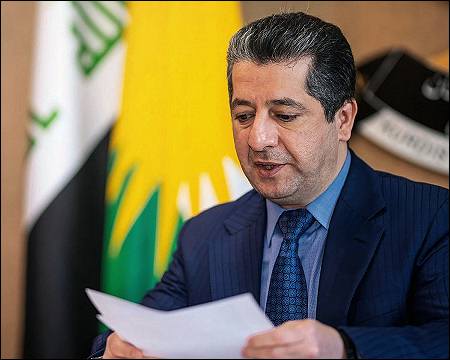Iraqi Kurdish Prime Minister Masrour Barzani likes to promise transparency. In a December 2019 speech marking his first hundred days in office, he declared, “Kurdistan is stronger, more transparent and more secure today than it was when I spoke to you at my inauguration. Dear citizens, first of all, a government that serves the people needs to be transparent, efficient and modern.” In an October 2020 address to parliament, he spoke about “public scrutiny, transparency, and accountability are at the core of his cabinet’s mandate.” Speaking in Erbil in February 2021, he promised “fairness and transparency” in government and outlined a strategy to “vastly increase transparency and efficiency in public service.” The following month at a budget meeting, he promised that the budget bill “will be based on transparent data.”
Barzani is not the first Kurdish figure to promise transparency. In 2016, Nechirvan Barzani, then prime minister and now regional president, signed a contract with Deloitte to audit the region’s oil revenue. Qubad Talabani, Masrour’s assistant, also bragged about the Kurdistan region’s work with PricewaterhouseCoopers. The problem is that the regional government never releases the results of its audits or lets forensic accountants have unfettered access to its books. In effect, Kurdish leaders use audits more to deflect than elucidate.
The need for transparency is real, however, and if Masrour is serious, he has a unique opportunity to prove it. For several years now, Masrour has been not only an Iraqi Kurdish citizen, but also a United States permanent resident. His younger brother Mala Mustafa “Babo” is a U.S. citizen. So too is Muksi Barzani. Residents and citizens must both file U.S. tax returns, even if they are reside abroad. Indeed, the United States is one of the only countries in the world to practice citizen-based rather than residence-based taxation.
This means that the U.S. Internal Revenue Service demands the right to tax its citizen and those with permanent residency even when they live abroad. While some countries have separate double taxation treaties with the United States, these do not alleviate the paperwork required by filing tax returns and, in many cases, detailing the contents of foreign bank accounts. If Masrour did not file his taxes forms with the Internal Revenue Service, he could face criminal liability in the United States and lose his residency. If Mala Mustafa and Muksi did not, they face prison when they return to the United States.
Traditionally within the United States, presidential candidates release their tax returns for the sake of transparency although they had no legal requirement to do so. Donald Trump was an exception; he sought to conceal his returns leading many Americans to believe he had something to hide. Finally compelled by courts in New York to release his documents, it now appears public suspicions were valid as the New York attorney general seeks to compare information contained therein with other statements to banks to suggest fraud and corruption. Simply put, even if law does not require release of tax filings, politicians who have nothing to hide have no reason to shield such documents.
Tax returns may not expose everything, as Iraqi and Kurdish politicians often use relatives and close associates to handle their financial affairs. Masrour supposedly uses Sarwar Pedawi, reportedly a Dutch citizen, to handle his finances and assets in Iraq. Perhaps in the name of transparency, then, Masrour might not only release his own documents and order family members and other dual citizens serving in the Kurdistan Regional Government to release their own overseas tax filings, but he might also compel every Kurdish office-holder to release filings made by their various agents and business associates. Transparency requires no less.
Michael Rubin is a former Pentagon official whose major research areas are the Middle East, Turkey, Iran and diplomacy. He is author of “Dancing with the Devil: The Perils of Engaging Rogue Regimes” (Encounter, 2014). He is a resident scholar at the American Enterprise Institute AEI. His major research area is the Middle East, with special focus on Iran, Iraq, Turkey, and Kurdish society. Read more by Michael Rubin.










